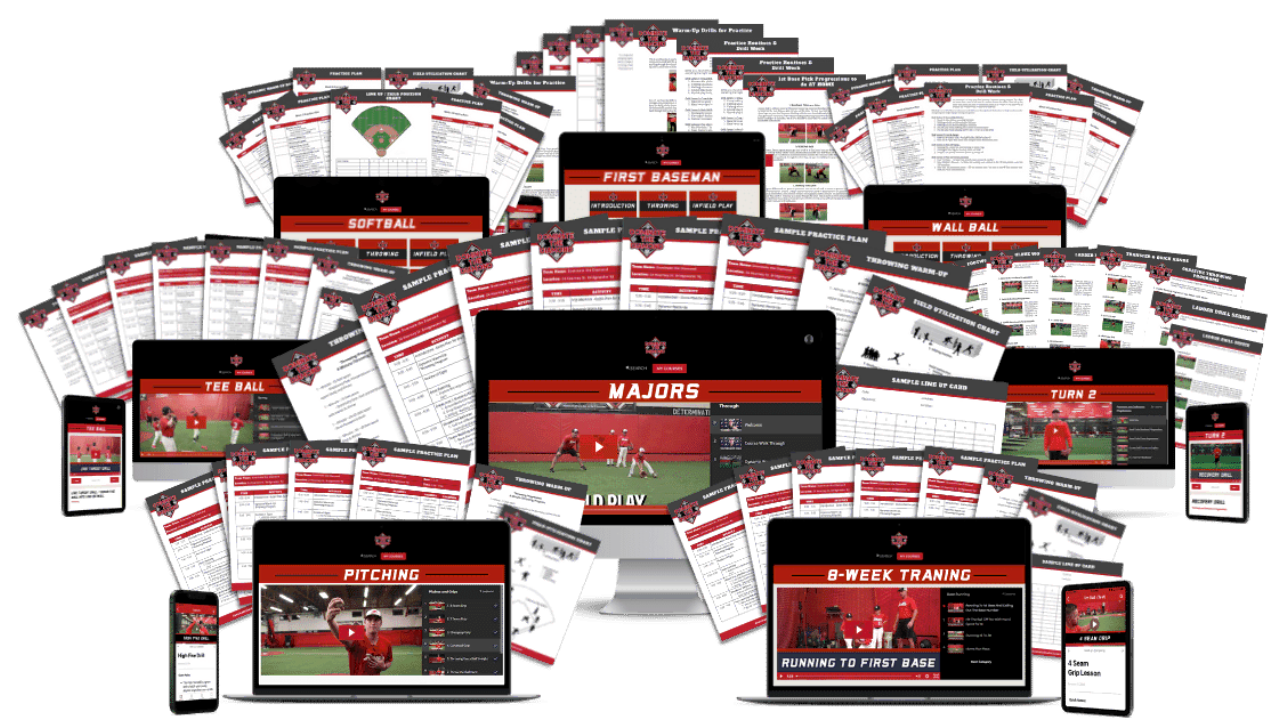Parent-Coach Challenge: How to Avoid Favoritism When Coaching Your Own Child

What father hasn’t dreamed of coaching his own child’s youth baseball team? Coaching by itself is a fulfilling experience but being able to develop your own child adds an extra layer of satisfaction.
But let’s be honest - there’s a tricky side to it that you might not think about before signing up as head coach. One of the most common challenges for new coaches is dealing with the perception of favoritism. Even if you’re doing your best to treat every player fairly, others might think otherwise, which can stir up a lot of tension.
You’re not alone in this. Many parent-coaches have been where you stand, and with a few smart strategies, you can handle this issue as smoothly as they have.
What Exactly Is Perceived Favoritism?
Simply put, it’s when people think you’re giving your child special treatment—whether it’s more time on the field, extra praise, or better positions. Even if you think you’re being fair, just the idea that there might be bias can cause problems.
We’ve heard of many youth baseball coaches who were accused of favoring their kids during practices and games. Despite their best efforts to treat everyone the same, some parents thought these players were getting more attention, better positions and more playing time. This created tension among the parents and even affected team spirit. It was a huge revelation to these coaches that how things look can be just as important as how they actually are.
Avoiding The Pitfalls
So, how do you steer clear of the favoritism trap? Here are some simple strategies that can help:
Set Clear Expectations
It’s important to set clear expectations for both your child and the rest of the team from the start. Let everyone know that your decisions are based on skills, effort, and what’s best for the team—not on personal relationships.
One coach we knew always had a team meeting at the beginning of the season to explain his coaching approach. He made it clear that while he loved coaching his child, the team came first. By setting this tone early on, he helped to manage expectations and reduce any potential hard feelings.
Be Open With Your Decisions
Being completely transparent is essential when your child is on your team. Whether it’s about playing time, positions, or even praise, make sure your choices are based on clear reasons that everyone understands and recognizes. This might mean explaining why certain players are in specific positions or why someone is getting more time on the field.
For instance, when it comes to deciding positions, consider holding tryouts where all players, including your child, have the chance to show their skills and talents. This not only gives everyone a fair shot but also makes your decision-making process clear to everyone.
Involve Other Coaches
One of the best ways to avoid the perception of unfairness is to get assistant coaches involved to help you make choices in games and practices. Having another person’s opinion can make it easier for you to make decisions that benefit everyone as a whole.
In our own coaching experience, we always rely on assistant coaches to help us make important decisions about playing time, what child fits best in what position and game strategy. This way, it wasn’t just us making the calls, but a unified decision that always put the team’s needs first.
Rotate Roles and Responsibilities
Another good idea is to change up roles during practices and games. This allows all players to give different positions a try and create opportunities for everyone. Not only does this reduce the chances of favoritism, but it also gives players a chance to develop a variety of skills.
Try rotating pitchers and infielders during practice. This will not only keep the kids interested but also ensure that everyone has a chance to stand out and showcase what they can do.
Talk Openly With Your Child
It’s extremely important to have a conversation with your child about their role on the team. Make sure they understand that while they are your child, they are also one of the players, and the same rules apply to them as to everyone else.
Explain that while you want them to do well, the decisions you make as a coach are for the good of the team. By setting this expectation early, your child will have a heads up that any tough calls will be made for the right reasons.
Handling Complaints or Concerns
No matter how fair you try to be, there will still be times when other parents or players voice concerns about you favoring your child. The key here is to handle these situations professionally. Listen to the objections, provide clear reasons for your decisions, and reinforce your commitment to fairness.
A good approach is to have an open-door policy where parents feel comfortable bringing up any worries or questions. This not only shows that you’re approachable but also that you’re serious about being impartial and straightforward.
Putting The Team First
Coaching your child in youth baseball involves balancing many factors, with fairness being the most important. It’s essential to focus on creating a positive environment where every player feels included and valued.
Instead of spotlighting individual performance, emphasize team goals and collective progress. By doing so, you'll create a supportive atmosphere that benefits everyone.
When you’re on the field, remember that your actions set the tone for the entire team. An equitable approach not only improves team dynamics but also strengthens relationships with players and parents alike.
To help keep practices fair and balanced, check out our free practice planning template. It’s a great way to ensure every player gets their time in the spotlight and the right support throughout the season








